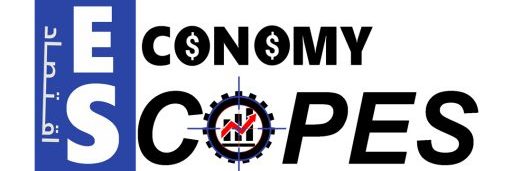سوق الشيكات المصرفية ينشط من جديد والسبب… نفسي!
ضوابط المصارف مستمرة
العوامل نفسية!
المصدر: المدن – عزة الحج حسن
The Bank Check Market is Reviving, and the Reason is… Psychological!
The bank check market is witnessing a noticeable revival in its activities, both in buying and selling, despite the absence of real developments in the banking sector or at the Central Bank of Lebanon. This revival occurs against a backdrop of no indications that suggest a pathway is opening for checks issued against previous bank accounts, specifically those tied to the dollar bank accounts (known as “lollar”).
During the early years of the financial crisis, there was an increase in the purchasing of checks issued against frozen bank accounts. Initially, these transactions focused on repaying bank loans and settling due debts. Checks were sold at a discount rate that often exceeded the deduction rates from the bank's dollar exchange rate, starting from 25% and escalating to nearly 90% currently. This means that the holder of a bank check receives only about 10% to 10.5% of the cash value of their funds at best.
These transactions led to the repayment of loans, the unfreezing of deposits, and settling of dues, but they also resulted in significant losses for depositors regarding the value of their funds held at banks. In 2023, the trading of bank checks in dollars decreased to minimal levels due to several factors, including the Central Bank's tightening control over their circulation and the banks' restrictions aimed at curbing the trade of lollar checks.
Today, however, we see the issue of trading in lollar checks returning to the forefront, despite the ongoing strict regulations and restrictions. What are the reasons behind the renewed demand for purchasing bank checks against lollar accounts?
Continued Bank Restrictions
The vast majority of Lebanese banks continue to impose strict regulations on trading bank checks to prevent their speculative trading. However, this does not entirely inhibit depositing and trading activities, albeit under specific and stringent conditions. While some banks outright prohibit the trading of dollar-denominated bank checks and restrict clients from depositing any bank check regardless of its source, many banks continue to open the door for deposits and trading of these checks under specific conditions.
According to a survey conducted by “Al-Modon” across various banks, it was revealed that some banks, including Bank of Beirut, Bank of Byblos, and Bank of the Mediterranean, do not accept checks in dollars as a general principle, except for loan repayments and a few very narrow cases under certain conditions. These conditions include identifying the check issuer and ensuring there is no repeated issuance of checks by the same individual, with the issuer being deemed trustworthy by the bank. A banking source states that banks have not completely closed the door on check deposits but are managing the trading of checks and hindering their speculative trading.
Interestingly, despite decisive banking measures and impediments to trading checks, several banking sources acknowledge that trading in lollar checks has resumed activity. One source noted that “the buying and selling of checks has gained momentum since about a month ago, following a noticeable decline in the first half of this year.” It’s worth mentioning that the total number of checks traded in lollar has dropped to 151,000 this year by September, compared to 353,000 during the same period last year.
The source suggests that the resumption of check trading is linked to a misunderstanding among some clients regarding the recent amendment to Circular 166. The latest amendment allows any account holder whose account was closed and who was issued a bank check to return the check to the bank. The source explains, “Many people thought they could deposit bank checks and benefit from Circular 166, but this is incorrect.” It is confirmed that many clients are approaching banks to inquire about the possibility of trading dollar-denominated bank checks (lollar).
Psychological Factors
A banking source emphasizes that psychological factors play a significant role in reviving the bank check market. Banking expert Khaled Shahin explains the various factors and indicators that have led clients to feel optimistic and resume purchasing bank checks. He attributes the interest in buying checks to psychological factors driven by several signals. The first of these relates to the increase in reserves at the Central Bank of Lebanon, which have risen to over $10 billion, suggesting the possibility that the Central Bank may, in the upcoming phase, release part of the frozen deposits according to a segment of clients.
The second factor is the recent amendments to Circulars 158 and 166, which have raised clients' hopes that the Central Bank is gradually facilitating banks' responses. The third factor involves the entry of Lebanese Eurobonds into speculation and foreign purchasing, which has led clients in Lebanon to perceive positive signals that should be seized. The fourth factor reflects an optimistic belief in the country's recovery following every war and the commencement of its reconstruction. Collectively, these factors have created a “psychological” state among clients that reflects an “assumed” direction toward a new phase characterized by higher repayments of deposits.
In contrast, a source from the Central Bank asserts that there are no real factors currently to increase account ceilings or adjust the exchange rate of dollar bank accounts. When asked whether there will be any movements in the near future, the source states that there is no clear future in the Lebanese economy; it is rather ambiguous and gray, with no clarity or obvious future. “Thus, the Central Bank cannot adjust the exchange rate at this time, neither by lowering nor raising it, to avoid causing upheaval in the market.”
Translated by economyscopes team






